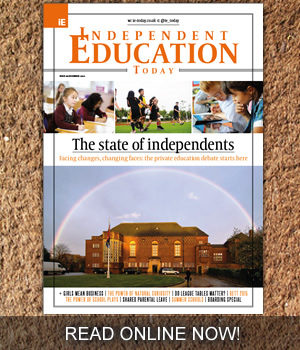The Cyber Security Challenge UK Schools Final, created by industry giants from GCHQ to Raytheon, was held at Warwick University yesterday.
The event challenged 32 of Britain’s most gifted teenage code breakers from schools across the country. Contestants hacked into simulated nuclear facilities, hunted down hidden message-carrying pigeons and cracked codes with an Enigma machine. The ultimate winner received a £1,000 prize from AFCEA Academic Trust.
They were also given the opportunity to meet the Minister for the Cabinet Office, Francis Maude at the third anniversary event for the Government’s Cyber Security Strategy, taking place tomorrow, an event of particular significance as Cyber Security Challenge UK is an organisation which receives funding from the National Cyber Security Programme.
The final, dubbed Cyber Games 3.0 is the culmination of the nationwide release of a bespoke Cyber Security teaching resource provided by Challenge Sponsors and Partners leading to virtual code-breaking competitions and is sponsored by the Cabinet Office. These competitions have been designed to unlock hidden cyber talent across Britain’s schools and help the industry address a critical cyber security skills gap by sparking interest around cyber in young people.
The games have been created by some of the leading names in the cyber security industry including: GCHQ, the Cabinet Office, defence giant Raytheon, global IT trade association CompTIA, Warwick WMG Cyber Security Centre, Dataline, MWR Infosecurity, educational charity the Smallpiece Trust, Birmingham City University, Warwick University Computer Science Department and BT.
Chris Ensor, Deputy Director for GCHQ National Technical Authority said: ”It is vital that we tap into, enthuse and encourage the flourishing talent in our schools. We need gifted teenagers like these coming into the cyber security profession.”
The ‘cyber security through the ages’ final looked at key developments in cyber security across a number of decades, starting from Bletchley Park in the 1940s and leading right up to the present day. It challenged pupils to crack complex codes, learn how to spot weaknesses in a network and understand the issues that come with the development of the Internet of Things.
Eight teams of gifted teenagers demonstrated their code-breaking skills in front of industry experts in a series of live timed tests, including a competition to prevent a cyber-attack on a nuclear facility in the midst of a simulated nuclear meltdown, and a contest to hunt down hidden ‘message pigeons’ by detecting their radio frequencies and then using a real Enigma machine to decrypt the messages.
Pupils had to access credit card details by hacking into central heating and ventilation systems to access a computer mainframe, compete in games involving steganography and use SCADA (supervisory control and data acquisition), a system for using coded signals to remotely access and take over equipment.
As part of its ongoing work to tackle the cyber skills gap, the Cyber Security Challenge Schools Programme recently unveiled an industry-backed free-to-download Cyber Security Schools Pack for the 2014 curriculum, which features case studies in cyber-terrorism and exercises in cryptography.
Brian Higgins, Schools Programme Manager at the Cyber Security Challenge UK said: “We have been working with leading employers to train the next generation who will defend Britain in cyberspace. We aim to work with schools to address the cybersecurity skills gap that is causing such concern across industry. Crucially, by offering a pathway to future employment, this helps prevent gifted children drifting into cyber-crime, by providing a positive outlet for their talents.”
Rob Partridge, Head of the BT Security Academy added: “Data breaches and hack attacks are increasingly frequent so it is vital that we act now to build the UK’s cybersecurity talent base at grassroots level. The UK cybersecurity industry will soon be worth £3.4 billion a year yet many children have never been told about the wide array of career opportunities in this field. The enthusiastic response to the competition that we have seen from teenagers across Britain demonstrates the huge pool of gifted youngsters that our economy could be tapping into.”
Free teacher packs are available to schools across the country who sign up on the Challenge website: www.cybersecuritychallenge.org/education












